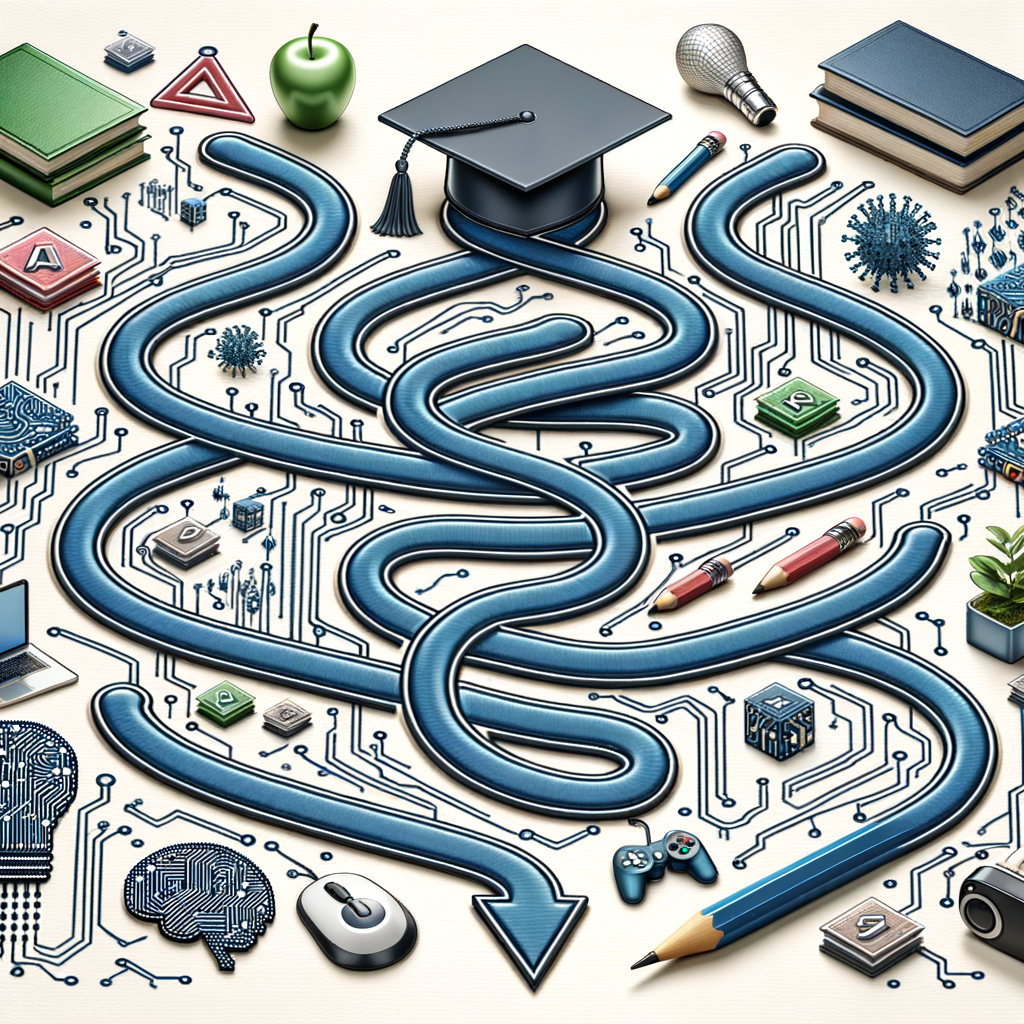
AI in Education: Personalizing Learning Paths for Every Student
In this blog post, we explore how artificial intelligence is transforming the educational landscape by creating personalized learning experiences. Discover how AI-driven tools are analyzing student data to customize educational content, improving engagement and outcomes for learners of all ages.
Introduction
The educational landscape is undergoing a profound transformation thanks to the advent of artificial intelligence (AI). These changes are not just about automating administrative tasks but are fundamentally altering how education is delivered to students of all ages. At the heart of this transformation is the ability of AI to personalize learning paths, ensuring each student receives the most effective education tailored to their individual needs.
The Need for Personalized Learning
Traditional education models have long been criticized for their one-size-fits-all approach. Each student's needs, learning speeds, and interests are unique, and individualized attention has proven to be a more effective method of teaching. However, providing such personalized attention to every student has been logistically and financially challenging.
AI is poised to change this. By leveraging vast amounts of data, AI systems can deliver personalized educational experiences at scale, catering to the diverse needs of students.
How AI Personalizes Learning
1. Data-Driven Insights
AI systems analyze vast data sets collected from students' interactions with educational content. This includes analyzing their answers to questions, engagement levels, time spent on topics, and more. Based on these interactions, AI assesses a student's strengths, weaknesses, interests, and learning pace.
2. Adaptive Learning Platforms
Adaptive learning technologies use AI to adjust the difficulty and type of content presented to students in real-time. As a student progresses, the system continuously refines its understanding of the student's needs, offering recommendations and resources that are most beneficial.
3. Customized Curriculum
AI aids in developing a curriculum that adapts to the student's learning style and pace. This includes recommendations for practice problems, interactive modules, videos, and other educational resources. Such customization enhances engagement and retention, allowing students to progress more effectively.
4. Intelligent Tutoring Systems
These systems use AI to simulate the experience of a personal tutor. By dialoguing with students and providing immediate feedback, intelligent tutors can identify when a student is struggling and offer customized assistance tailored to their specific misconceptions or errors.
5. Predictive Analytics
AI can also predict future performance and problems before they occur by identifying patterns that may not be readily visible to human educators. This allows interventions to be made early, preventing potential academic decline and supporting long-term student success.
Benefits of AI Personalization in Education
Enhanced Student Engagement
Personalized content keeps students more engaged as it aligns with their interests and learning preferences.
Improved Learning Outcomes
By focusing on individual needs, students can master content more thoroughly and effectively.
Teacher Support
AI tools support teachers by reducing burdensome tasks, allowing them to focus on high-impact educational activities.
Accessibility
AI tools can make education more accessible by offering flexible learning paths that accommodate diverse learning needs and environments.
Challenges and Considerations
While AI in education offers many benefits, there are also challenges that need to be considered. Data privacy is a primary concern, as these systems require access to sensitive student information. Moreover, the quality of AI systems is crucial; poorly designed systems could reinforce existing biases or provide inappropriate recommendations. Continuous monitoring and adjustments are required to ensure the system remains effective and ethical.
Conclusion
AI is revolutionizing the education sector by making personalized learning a reality. As technology continues to advance, the potential of AI to transform educational experiences will only grow, offering unprecedented opportunities for students worldwide. Educators, policymakers, and technologists must work together to harness these tools' power, ensuring their responsible and equitable use in classrooms.
For students, the promise of AI lies in education that is engaging, effective, and intricately tailored to individual needs, potentially paving the way for a lifetime of learning.